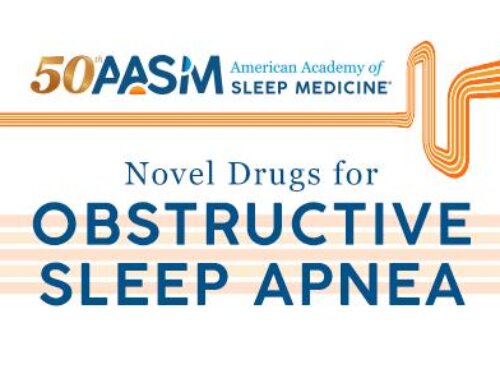On April 17, 2020, AASM member Dr. Seema Khosla talked with Dr. Chris Winter, owner of Charlottesville Neurology and Sleep Medicine Clinic in Virginia, about his practice’s response to the novel coronavirus pandemic.
The discussion is part of the AASM’s Clinical Conversations: COVID-19 series.
You can play the video for the full conversation or review the highlights and summary below.
Highlights
- Despite economic challenges, Dr. Winter says patient demand has remained steady. He believes the stress of the coronavirus pandemic has caused people to pay more attention to getting good sleep.
- Rely on your office staff for support in the transition to telemedicine. They may have ideas to improve operations and make them more efficient for providers and patients.
- Providers need to have a voice in developing insurance guidelines for telemedicine coverage.
- The crisis has created opportunities to have more in-depth discussions with patients about treatment options for sleep apnea.
Summary
As the dangers of the novel coronavirus became more apparent, Dr. Winter’s practice transitioned to telemedicine. He was hesitant to embrace telemedicine initially but said it has been going well and makes it easy to have quick check-ins with patients. Demand is steady, and Dr. Winter said no-shows have decreased. His practice continues to do home sleep apnea tests, while their affiliate hospital has suspended in-lab testing. The office manager goes into the office daily, and the physicians drop off and pick up charts and paperwork separately in the evening. He expects to take his time and observe what other clinics, hospitals and the state department of health recommend before reopening.
Telemedicine could change the long-term dynamics of the sleep medicine practice, but Dr. Winter values his face-to-face visits with patients. He predicts that a hybrid approach to patient visits and follow-ups will be required by insurance. As telemedicine evolves, providers need to have a voice in developing insurance guidelines for telemedicine coverage.
Dr. Winter does recognize that there is a risk that CPAP potentially could aerosolize COVID-19 virus particles. However, he has found that patients are reluctant to give up their CPAP and the benefits they receive from using it. Therefore, he recommends that patients sleep in a separate room if possible.
Reflecting on the outbreak of severe acute respiratory syndrome (SARS) in 2003, Dr. Winter believes that lessons learned could apply in the coronavirus pandemic as well. He notes that sleep problems have stemmed from viral outbreaks in the past, and that this could be the case with COVID-19 as well.
His practice is aware that some patients may be in difficult economic circumstances now. The challenge is to accommodate their needs while still taking care of his staff. Economic programs may also be available to help sleep centers around the country.





